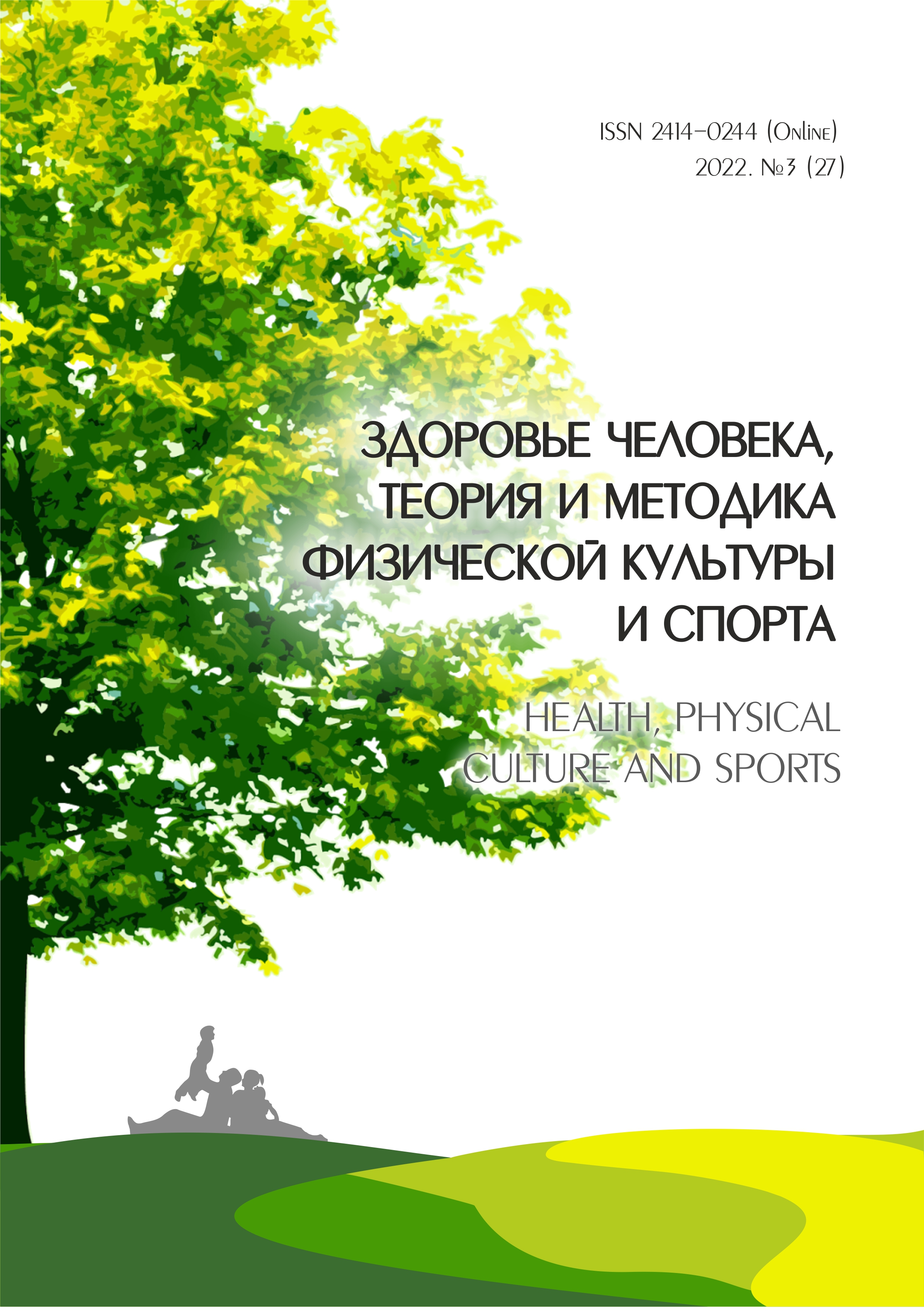THE RELATIONSHIP BETWEEN A PERSON'S TEMPERAMENT AND THE CHOICE OF SPORTS ACTIVITY
Abstract
The type of GNI has a direct impact on a person's life, it plays an important role when communicating with other people, also manifests itself in a person's choice of hobbies, including when choosing sports activities, sports hobbies. So, according to the Russian psychologist A.N. Leontiev, it is the psyche that determines our activity. The purpose of the study was to study the relationship between the type of temperament and the choice of sports. The study was conducted on the basis of Google forms, 44 people from 16 to 40 years old took part in it. In this form, Eysenck's methodology was given to determine the temperament of respondents and several questions concerning sports experience and attitude to sports, and respondents were also offered a scale according to which 1 point — "no, it's not mine", 5 — "yes, it suits me, I love it" denoting attitude to certain sports (command, combat, power, extreme). The results showed that only 33% of melancholics started playing sports from childhood, in contrast to 50% or more of sanguine and choleric people. Phlegmatic people are not particularly interested in physical education, are not ready to take part in competitions with joy, do not feel confident in sports. 47% of melancholics felt depressed in physical education classes, while 20% of choleric people agreed with this statement, and only 9% of sanguine people. Sanguine people showed the greatest interest in combat sports — according to the results of the survey, many of them were engaged in martial arts — Aikido, judo, wushu, etc. 80% of choleric people answered that team sports are very suitable for them and they love them. 90% of phlegmatic people noted that they like to play badminton and tennis. These, as well as other results obtained in the course of the study, allow us to understand the role of temperament in sports. Thanks to the results of my research of the coach, parents and teachers will be able to find the best approach to future athletes (knowing the features and characteristics of temperament), as well as when observing difficulties in mastering a particular sport, direct a teenager or a young man / girl to the right, suitable and comfortable sports activity to maintain physical and mental health.
Downloads
References
Маклаков А.Г. Общая психология : учеб. для вузов. СПб. : Питер, 2014. С. 554–562.
Тест — Методика Айзенка по определению темперамента. URL: http://ksdrd.ru (дата обращения 19.06.22).
Юлия С. Как подобрать вид спорта по темпераменту? // Ян Журнал. URL: https://yan.guru (дата обращения 19.06.22).
Гаврилович А.А. Особенности темперамента и специфика проявления психических состояний у спортсменов различных специализаций // Общество: социология, психология, педагогика. 2013. № 3. С. 50.
Типы темперамента и подходящие виды спорта // Спорт в твоем дворе. URL: http://www.dvorsportinfo.ru (дата обращения 19.06.22).
REFERENCES
Mavlyanova Z.F., Baranova S.S. (2020). Typological features of athletes engaged in gymnastics and taekwando. Samarkand. Pp. 29–34 (in Russian).
Maklakov A.G. (2014). General Psychology: Textbook for universities. St. Petersburg: Piter. Pp. 554–562 (in Russian).
Eysenck's test method for determining temperament (in Russian). URL: http://ksdrd.ru (accessed 19.06.22).
Yulia S. How to choose a sport by temperament? // Yan Magazine (in Russian). URL: https://yan.guru (accessed 19.06.22).
Gavrilovich A.A. (2013). Features of temperament and specificity of the manifestation of mental states in athletes of various specializations. Society: Sociology, Psychology, Pedagogy. No. 3. P. 50 (in Russian).
Types of temperament and suitable sports // Sports in your yard (in Russian). URL: http://www.dvorsportinfo.ru (accessed 19.06.22).
Copyright (c) 2022 Health, physical culture and sports

This work is licensed under a Creative Commons Attribution-NonCommercial 4.0 International License.
An author should not normally publish manuscripts describing essentially the same research in multiple journals or publication venues. Such redundant publication is generally considered to constitute unethical publishing behavior, and if discovered may result in a manuscript under consideration being rejected, or a published article being retracted.
Authors of manuscripts reporting on original research should present an accurate account of the work performed, accompanied by an objective discussion of its significance. Underlying data should be represented accurately in the manuscript. The manuscript should contain sufficient detail and references to permit others to replicate the work. The fabrication of results and the making of fraudulent or knowingly inaccurate statements constitute unethical behavior and may be cause for rejection or retraction of a manuscript or published article.





